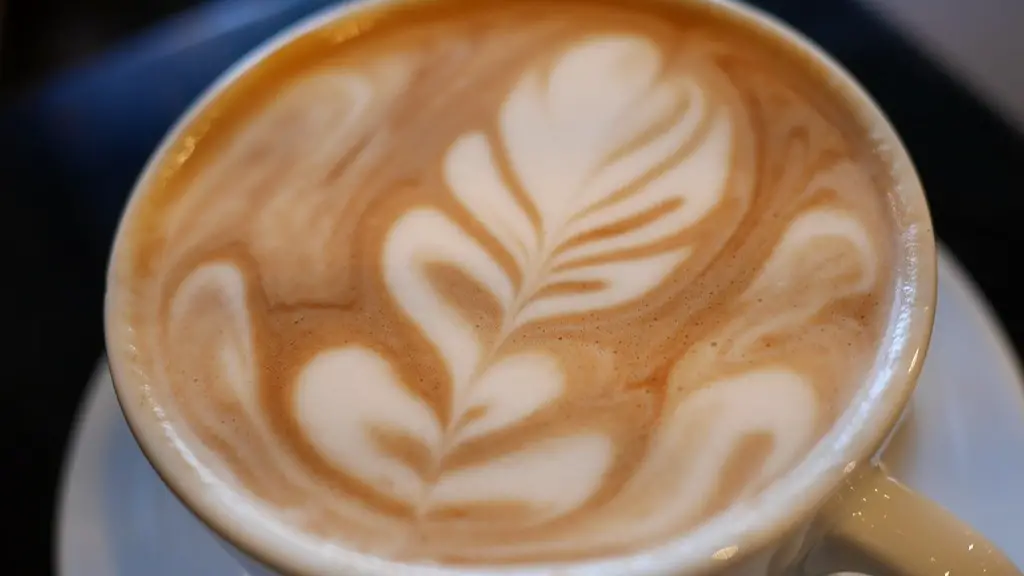Intermittent fasting has surged in popularity among the dieting crowd in recent years. But can coffee derail this effective dieting strategy? In this article, we explore the impact of coffee on intermittent fasting and offer some insights for those considering fasting.
Intermittent fasting means alternating periods of eating and fasting, typically within a 16/8 window. This means that you fast for 16 hours and have an eight-hour eating window each day. This type of fasting has been shown to lead to many health benefits, such as weight loss, reduced inflammation, and improved heart health.
When it comes to coffee and intermittent fasting, opinions are sharply divided. Some people believe that coffee does not affect the fast, while others say that it can break the fast and thus derail the diet. In order to understand the impact of coffee on intermittent fasting, we must first understand how coffee works in the body.
Coffee contains caffeine, which is a natural stimulant. This stimulant binds to adenosine receptors in the brain, blocking them from receiving adenosine, a neurotransmitter involved in sleep and energy. This blocking of the adenosine receptors results in increased alertness, energy, and focus. It also triggers the body to release hormones such as adrenaline and cortisol, which can boost metabolism and help the body burn more calories.
So what does this have to do with intermittent fasting? Some people believe that coffee can break the fast because the caffeine triggers the body to start digesting food, thus breaking the 16-hour period of fasting. However, other experts counter that caffeine is not a nutrient and therefore does not trigger the digestion process. Furthermore, research suggests that caffeine may actually enhance the benefits of fasting.
In one study, people were asked to drink a cup of black coffee before a 24-hour fast. The results showed that the participants benefited more from the fast when they drank the coffee, indicating that caffeine may have a positive impact on intermittent fasting.
Ultimately, the impact of coffee on intermittent fasting is still being debated, with different opinions among experts. The best advice is to listen to your body and experiment with different approaches to see which works best for you. If you find that drinking coffee interferes with your fasting window, then try reducing or eliminating your consumption of caffeine.
Meal Timing and Its Impact on Intermittent Fasting
Meal timing can play a major role in the success or failure of intermittent fasting. Many people find that eating the majority of their calories within their eight-hour eating window can help them to maximize the benefits of fasting. Studies have shown that people who eat the majority of their calories within the eight-hour eating window are more successful at losing weight and improving their overall health.
Furthermore, some experts believe that it is important to eat a meal as close to the end of the fast as possible. This helps to minimize the amount of time in which the body has access to food, thus maximizing the benefits of the fast. Moreover, studies have shown that people who eat their biggest meals at the end of the fast tend to eat fewer total calories than those who spread out their meals over the eight-hour window.
Finally, if you find that your fasting window is not working for you, then it is worth considering changing the timing of your meals. Eating a larger meal late in the fasting window can help to maximize the benefits of the fast and make it easier to stick to your diet.
Length of the Fasting Window
The length of a fasting window can also influence the success of an intermittent fasting diet. Generally, most experts recommend performing a 16/8 overnight fast, which means fasting from 8 pm to 12 pm the next day. This gives the body roughly 16 hours of fasting time, which should be plenty for the body to begin the process of autophagy and reap the other benefits of fasting.
However, some people may find that 16 hours is too long for them and this can lead to an increased risk of hunger or cravings. If this is the case, then it is worth considering reducing the fasting window from 16 to 12 hours or even 10 hours. This can make it easier to stick to the fasting plan and still reap the rewards of intermittent fasting.
Furthermore, research suggests that shorter fasting windows can be just as effective as longer ones. One study found that a 10-hour fasting window was just as effective as a 16-hour fasting window in terms of weight loss and health benefits.
Coffee Alternatives During Fasting
If you are looking to stay hydrated during a fast and still reap the benefits of coffee, then there are several coffee alternatives that can help. These include herbal teas, decaf coffee, and coffee substitutes such as chicory or dandelion coffee.
Herbal teas are a great way to stay hydrated and get some of the health benefits of coffee without the caffeine. Decaf coffees can provide some of the flavor and benefits of coffee without breaking the fast. Finally, coffee substitutes such as chicory or dandelion coffee can provide flavor without breaking the fast or disrupting blood sugar levels.
It is worth noting, however, that some of these coffee alternatives contain small amounts of caffeine and can therefore disrupt the fasting process. Be sure to check the ingredients list carefully and avoid anything that contains caffeine.
Effect of Exercise During Fasting
Exercising while fasting can be a great way to maximize the weight loss benefits of intermittent fasting. However, it is important to be mindful that exercising while fasting can put extra stress on the body. It is therefore essential to ensure that you are well-hydrated, well-fueled, and well-rested before engaging in strenuous exercise.
Furthermore, it is important to monitor your body for signs of fatigue or hunger during exercise. If you feel dizzy, weak, or lightheaded, then it is important to stop and refuel. Additionally, it is a good idea to keep some snacks on hand in case you need a quick energy boost.
Finally, it is best to avoid any strenuous exercise during the first few days of the fasting period while your body is still adjusting. However, low-intensity exercise such as yoga or gentle walking are fine, and can even help to ease hunger cravings during the fasting period.
Alternatives to Intermittent Fasting
If intermittent fasting does not seem to be working for you or if you are finding it difficult to stick to the diet, then it is worth considering some alternatives. One option is the 5:2 diet, which involves eating normally for five days of the week and then restricting calorie intake for two days.
Another option is time-restricted eating, which involves eating all of your meals within an eight or 10-hour window each day. This type of diet helps to avoid late night snacking and can lead to weight loss, improved insulin sensitivity, and improved heart health.
Finally, there is the one-meal-a-day diet, which involves eating one large meal each day. This type of diet can help to reduce hunger and cravings and may lead to greater weight loss. However, it should be noted that this type of diet may not be suitable for everyone and it is important to speak to your doctor before embarking on this diet.
Conclusion
It is clear that there is still much debate over the impact of coffee on intermittent fasting. While some argue that it can break the fast, others contend that caffeine can actually boost the benefits of fasting. Ultimately, each person will have to experiment to find out which approach works best for them. In any case, it is important to remember to stay hydrated and listen to your body.





